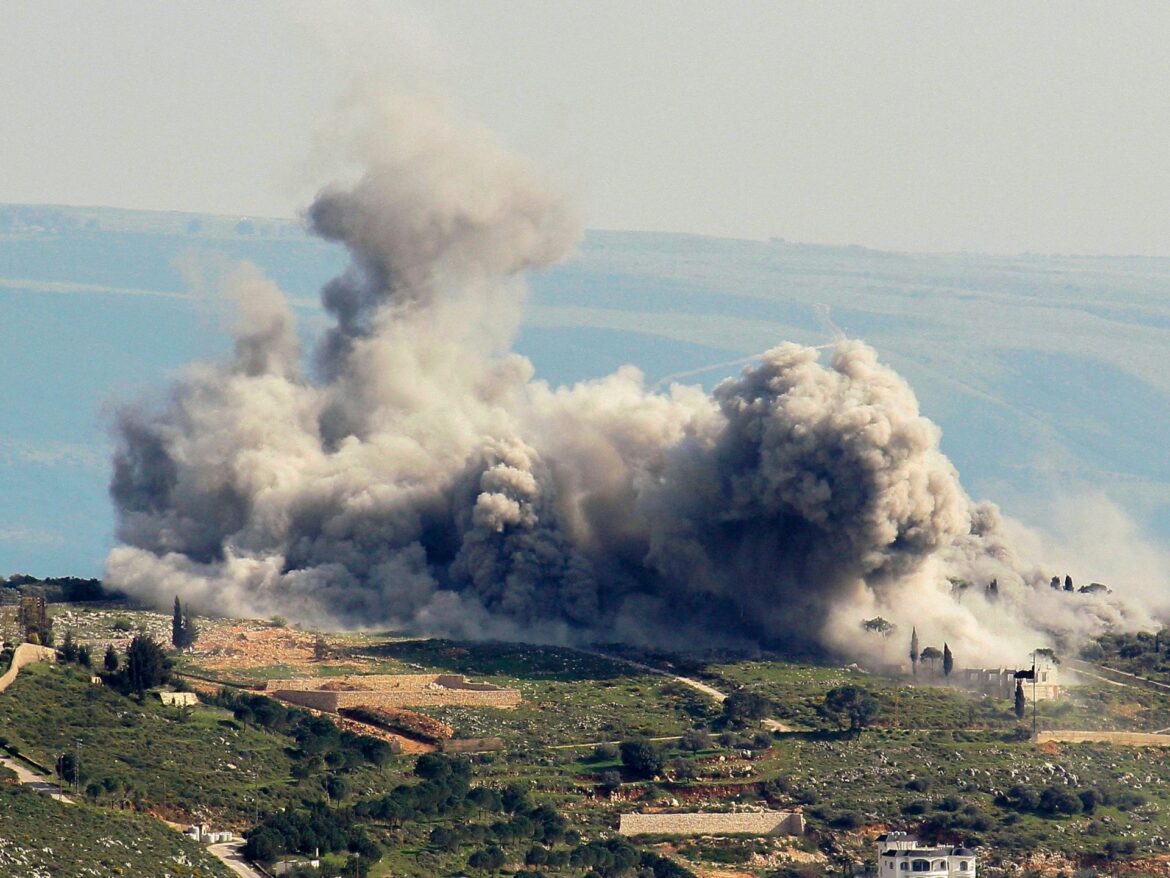Although a low-level conflict has been taking place on the Israeli-Lebanese border on an almost daily basis since October 8, when Hezbollah launched its operations in support of the Islamic Resistance Movement (Hamas) in the war on Gaza, the threats have escalated sharply over time, as military commanders announced Senior Israelis said they signed a plan to launch an attack to expel Hezbollah from the border, and the party responded by threatening a war “without rules and without a ceiling,” amid American warnings to Israel against launching a “blitzkrieg” against Lebanon.
With this summary, The Guardian newspaper brought together the parties to the war on the northern Israeli border, where doctors are preparing underground hospitals, people are fleeing their homes, and tension is brewing in the settlements.
Journalists Peter Beaumont and Kiki Kirzenbaum in Nahariya followed up on what is happening in northern Israel for the newspaper, explaining that treatment at the Galilee Medical Center, about 7 kilometers from the border with Lebanon, takes place in an underground complex below the hospital, because the site is vulnerable to the threat from Hezbollah missiles and drones. .
It is not only hospitals that are preparing for the possibility of a widening conflict. Israeli Religious Services Minister Michael Malkili, who is responsible for burials in Israel, said that his office is preparing for “bigger things in the north,” adding, “There are some things that you do not say on the air.”
An acute feeling of threat
The head of the Israeli power grid – according to the newspaper – sparked controversy last week when he wondered aloud how the country might be able to deal with an attack on its power plants, which is another reflection of how strongly the threat of a broader war on its northern border has been felt in recent weeks. .
Indeed, there is a great sense of threat in Israel, where about 60,000 people have been displaced, and crowded areas such as Kiryat Shmona, close to the border, have turned into ghost towns, after the fall of Hezbollah marches and missiles ignited widespread fires throughout the mountainous regions.
Despite the frantic diplomatic efforts led by the United States to calm the conflict – as the newspaper says – public opinion is pushing for a military response, with 60% of Israelis calling for attacking Hezbollah with full force, according to a recent poll conducted by the Jewish People Policy Institute.
Flying in the sky of Haifa
As the threat of war increased, Hezbollah showed disturbing images taken by a Hezbollah reconnaissance drone flying in the sky of Haifa, where the huge port towers and towers of the Bazan Group refinery dominate, in a clear threat to the city with a population of 300,000 people, according to the newspaper.
Andre Suwaidan, who runs a liquor company in Haifa, says he stayed in the city during the last war with Hezbollah. “I thought the best way to deal with it was to ignore it,” he said. But he is less optimistic now. “I doubt I will be able to ignore it this time,” he adds. 8 months of war have left people exhausted. “People cannot handle any more stress. The stress of war is not about a specific incident. It is about raising the temperature on an entire nation.”
Everything is tense
But within sight of the border, the conflict seems more real. On the balcony of a house in the settlement of Capri, a group of residents gathered to eat lunch outdoors and talk about the situation. Smoke rose at the site of a military base on the border, and a firefighter appeared to put out a fire near the settlement. Near the border after a marching attack.
On the table – as the newspaper explains – are three generations of men who fought in Lebanon, in the early 1980s, in 1995, and in the last major war in 2006. “We have all been in Lebanon,” says Adi Sinan, the head of the settlement. “We know what it’s like.” On the other hand, we know that one of the options we face is to be on the other side of the border.”
Goni Harash, who is waiting to start his guard shift as a first responder, says life has changed profoundly in the past eight months: “Everything is really tense. All day long you can hear bombs, sirens and alarms. My children used to walk to school. Now they don’t walk.” “Anywhere on their own.”
Although there are some differences among the residents of the settlement, there is common ground in the feeling that the Israeli government is abandoning them and leaving them to their fate, and they are in conflict over what should be done, as some accept a shorter-term agreement if it leads to the restoration of peace, even for a period of time, while Others believe that only a military attack will redress the balance.



